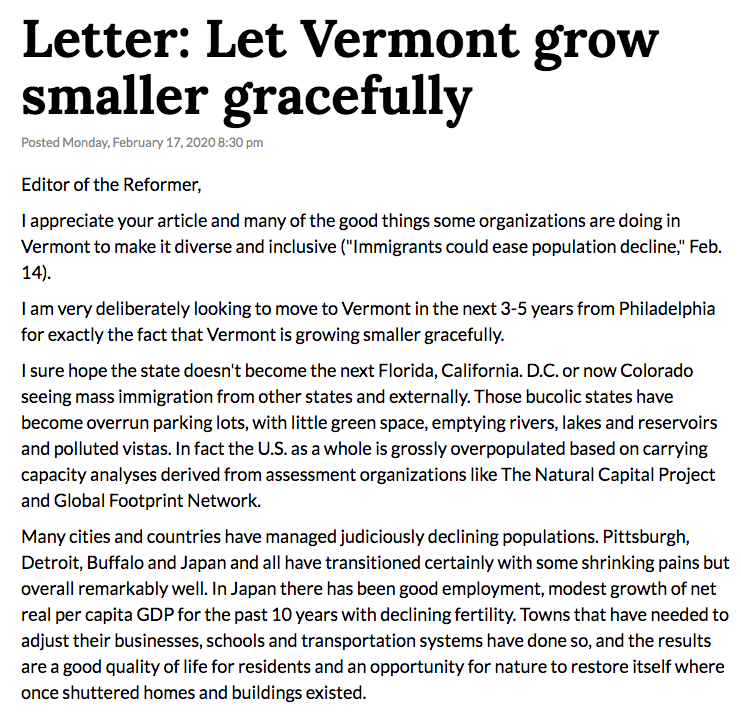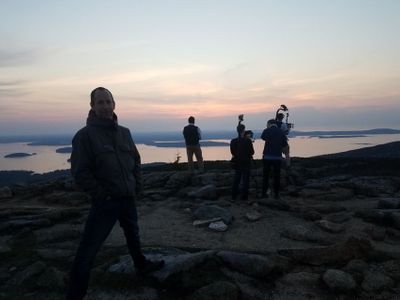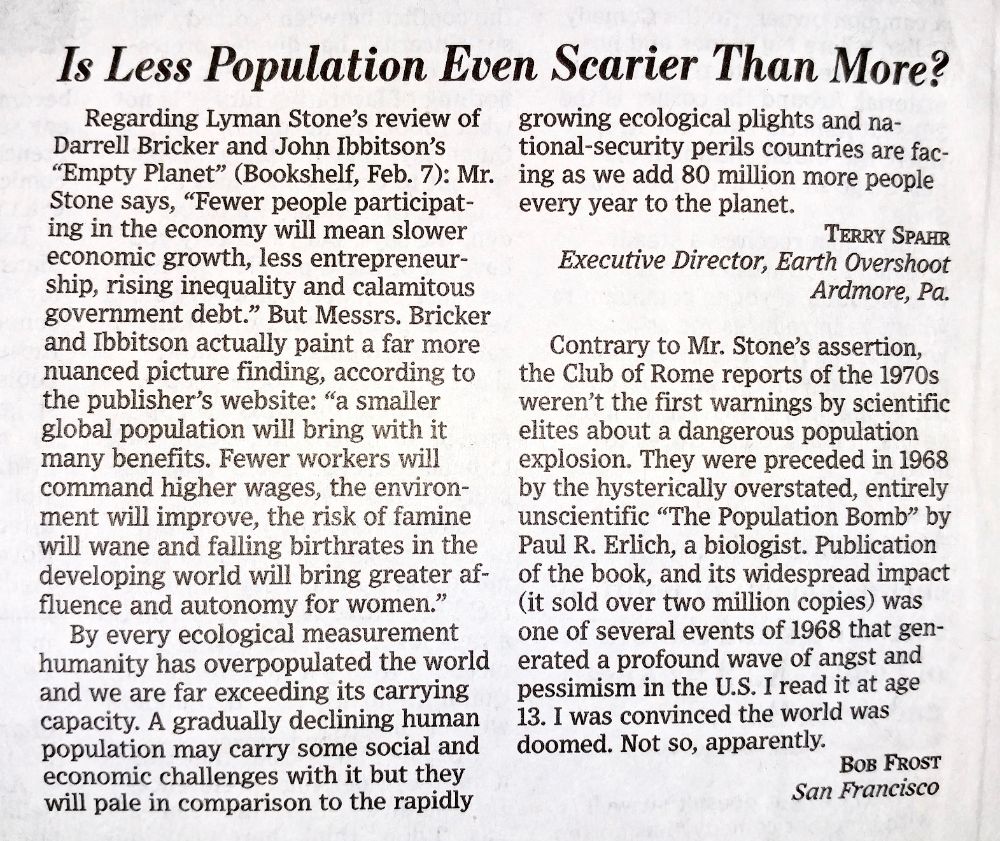
‘It’s a massive injustice’: inside a film on the dangers of overpopulation
In 8 Billion Angels, a new documentary about the rising population, experts explain how it will be those consuming less who will face the worst consequences

Children on the streets of Delhi, India. India has the second-worst air quality in the world that is cutting short the average life expectancy of Indians by 5.2 years. Photograph: 8 Billion Angels Productions
Wed April 28 2021
By Dream McClinton
Bill Mai, a Kansas farmer, was 12 years old when his irrigation system, rigged to the Great Plains Ogallala aquifer, was installed in 1948. At the time, it was a great novelty which helped increase yield and profit. But the water has dropped about one foot every year it is in use, leading many to wonder about the future of it.
“It’s my responsibility to save the water. Just like it’s my neighbor’s responsibility to save that Ogallala [aquifer] water for future generations,” says Mai, who has transitioned from aquifer use to a dry land farm which does not use irrigation to conserve the water. Across the state, Lon Frahm, the owner of Kansas farm Frahm Farmland, has a different perspective. His corn farm receives its irrigated water from the same aquifer. He, contrastingly, doesn’t mull over its use: “We’re using it faster than it’s being replaced. So, we’ll just keep doing it until we can’t.” Later, he looks out at the family farm he inherited from his late father in the 1980s. Then, the 6,000-acre farm was in a large amount of debt. He turned it into a profitable 30,000-acre industrial farm. “So, am I good or evil?” Frahm ponders.
Read more here.

It's Time to Talk About Unsustainable Population Growth

51 Years After the First Earth Day, Time to Return to a Major Concern for its Founder
April 22, 2021
By Terry Spahr
Opinion for The Inquirer
Residents of the greater Philadelphia area are increasingly confronting the undesirable social, health, economic and environmental impacts of an ever-expanding city and region, including sky-high housing costs, increased taxes, overcrowded schools, gridlock traffic, inadequate parking, alongside air, water, light and noise pollution. Even on vacation at the New Jersey Shore, we can experience disappointing beach closures because of pollution runoff and overflowing or failing sewage systems.
This environmental degradation inspired Earth Day, co-founded 51 years ago by Wisconsin Senator Gaylord Nelson as a “nationwide demonstration of concern for the environment so large that it would shake the political establishment out of its lethargy and, finally, force this issue permanently into the political arena.” While there were many positive outcomes from the heightened public awareness, including the establishment of the EPA and the improvement of many natural systems, today these safeguards have proven fleeting and ineffectual facing a rising tide of humanity.
In fact, Nelson maintained that stopping unsustainable population growth was the key to protecting the environment. He understood that a city, region or country that endlessly increases its population will deplete its natural resources and damage the environment for the sake of its own existence. He had the foresight to realize that continued growth, no matter how well-managed, is inherently unsustainable, and will engender greater
hardships and inequities, especially to those most vulnerable. Since that first Earth Day, the U.S. population has soared from 203 million to 330 million, and the global population has doubled to practically 8 billion.
That is why current strategies to solve our environmental emergencies aren’t working. Most attempts to reduce our human impact on the planet focus on reducing individual consumption of resources and collective CO2 emissions. Yet as the global population expands with 80 million more people added every year to the planet, overall consumption and emissions inexorably grow, requiring more energy, depleting more resources and causing more damage to the natural world. Other conservation efforts, including those based on technologies and efficiencies, have also failed to decelerate or reduce economic growth and consumption.
Given the lack of effective alternatives, calls and strategies to address unsustainable population growth are becoming more widely considered and accepted. A nationally representative online survey conducted by the Center For Biological Diversity showed that 73% of respondents agree that human population growth is driving animal species to extinction, with 85% believing society has a moral responsibility to prevent wildlife extinctions and 69% thinking society has a moral responsibility to slow human population growth if it would help prevent extinctions. The International Union for the Conservation of Nature recently passed a motion reaffirming the importance of addressing population matters to achieving conservation success. And
recently, heads of state in Egypt and India stated that their countries’ population growth must be addressed for the health and development of their nations and their sustainability.
A sustainable and equitable society does not mean a return to the 1960s and seventies, a time of great human rights abuses via one child policies and sterilization camps. Instead, it means a shift from simply talking about contraception and driving down population rates to focusing on reproductive health, reproductive rights, and reproductive justice.
Voluntary shifts in social norms have been realized in many countries like Thailand, Singapore, Ethiopia, and Iran when governments focus on better access to healthcare and contraception, cooperative partnerships, and innovative marketing. Together, these strategies served to solidify the connection between reduced personal fertility and a healthier environment.
At the center of that are girls and women. We know that when girls are educated, they are less likely to marry early, have early childbearing, and more likely to space their births. Additionally, when they are empowered with voice and agency, and have access to modern contraceptive methods, they are afforded healthier choices, not just for themselves, not just for their families, but for the planet, actually “Restoring Our Earth”, the theme of Earth Day 2021.
Additionally, we must acknowledge that a child born in a developed country like the U.S. has a far greater impact on the environment than a child born in lower-income countries. We should educate Americans about the enormous environmental impacts of having a child, promoting and embracing a culture that values environmentally conscious family planning, and giving the children we have the opportunity for greater prosperity, more freedom of choice, healthier lives, and a sustainable future.
Terry Spahr, a Philadelphia native, is Executive Director of Earth Overshoot, a nonprofit furthering education and action to make sustainability central to all personal and public decision-making.

In response to an article in Vermont's Brattleboro Reformer ("Immigrants could ease population decline," Feb. 14), Earth Overshoot Executive Director Terry Spahr wrote a Letter to the Editor ("Let Vermont grow smaller gracefully", Feb 17) explaining why a smaller population should not be feared.

For Many Reporters Covering Climate, Population Remains the Elephant in the Room

Earth Overshoot's Terry Spahr was interviewed and quoted in the Columbia Jouralism Review online magazine, cjr.org, regarding why more journalists aren't talking about human population in proportion to the climate impact that it can have. As part of the Review's Covering Climate Now intiative, Author Wudan Yan writes that "although journalists are reaching a consensus on the gravity of the climate crisis, there is no such consensus on how to link the issue of population with climate change—or whether the link should be made at all." Read the full article here.

What Compelled a Real Estate Executive to Produce a Film on Overpopulation?

Terry Spahr never fancied himself a filmmaker, and even now, with his first documentary on its way to film festivals and screenings, he has no plans to continue making movies.
But Spahr says his message was too vast and too vital to take any other form. That’s why, in 2016, he left his 20-year career in real estate and devoted himself to creating 8 Billion Angels.
With Spahr as executive producer, the documentary lays out the problem lurking behind Earth’s greatest environmental woes, from climate change to ocean acidification, deforestation to mass extinctions, rising seas to polluted air. It’s a problem people don’t like to talk about: the sheer number of us.
Read more here about how tackling our population problem offers our best hope for real sustainability: https://thepenngazette.com/is-our-planet-too-crowded/
A Smaller Global Population Will Bring With It Many Benefits - Spahr Says

